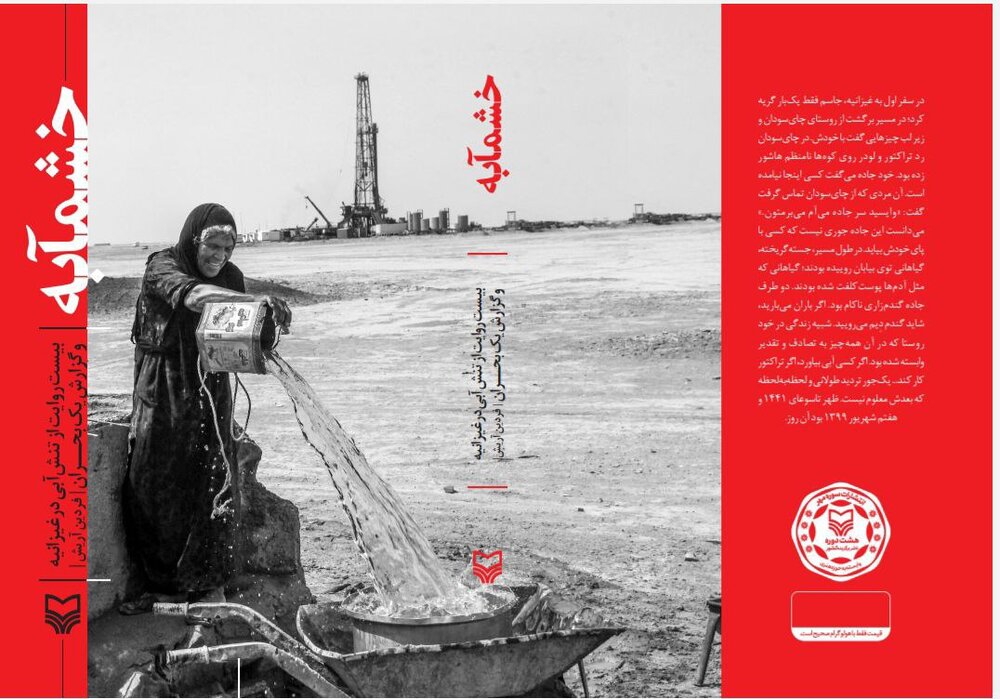The drought's ongoing story

The title of Fardin Arish's most recent book, which was published by Soore Mehr, is "Khashmabeh."
This book tells the story of how residents of Gheyzaniyeh, in the province of Khuzestan, cope with and overcome dryness.
This book is the result of the author's field research in Gheyzaniyeh, and it took a very short time from the time the idea for the book was created until it was written.
* Please give more information about the book's specific details, Mr. Arish.
The water crisis is the subject of the book. Drought has always been a problem for me because I was born and raised in the south. Water is still rationed, and every home has a water tank on the roof. People also use water storage in their daily lives. In the month of Muharram in 2020, I witnessed the Ghizanieh locals grieving fervently for Imam Hussain while also sobbing in pain over their lack of access to water. This book includes 20 stories with accompanying photographs about these people and their struggles.
* What difficulties did you encounter during the process?
The language was the first issue. They could only speak Arabic, which made it difficult for us to understand them and create the kind of secure environment we needed to see and hear their problems. We asked a driver to take us everywhere on the first day we were there, translate for us when they spoke, and gain their attention and trust, and people were talking about all of their problems, not just the water crisis; as if it were a relief to speak and be heard.
* What purpose does it serve and how important is it to document social issues?
By documenting, we can see the truth. Our country is rife with ignorance, and much of Iran's geography is uncharted territory. People from whom no sound or image can be heard; at this point, documentary writing is required.
The documentary provides a closer and more thorough understanding that can serve as the foundation for wise decisions, whether at the local or national level, in contrast to the media, which engages with an issue quickly and then quickly forgets about it.
* Your previous book was also written in the form of a story. What is the reason for it?
I love literature, and nothing brings me more joy than a novel or a story. The reason for it, I suppose, can be traced back to when I was a child and my mother would only tell me two bedtime stories, which I was familiar with already, yet I still found so captivating. In conclusion, I believe that the key to effective storytelling is to draw on dramatic reality while crafting an engaging tale.
